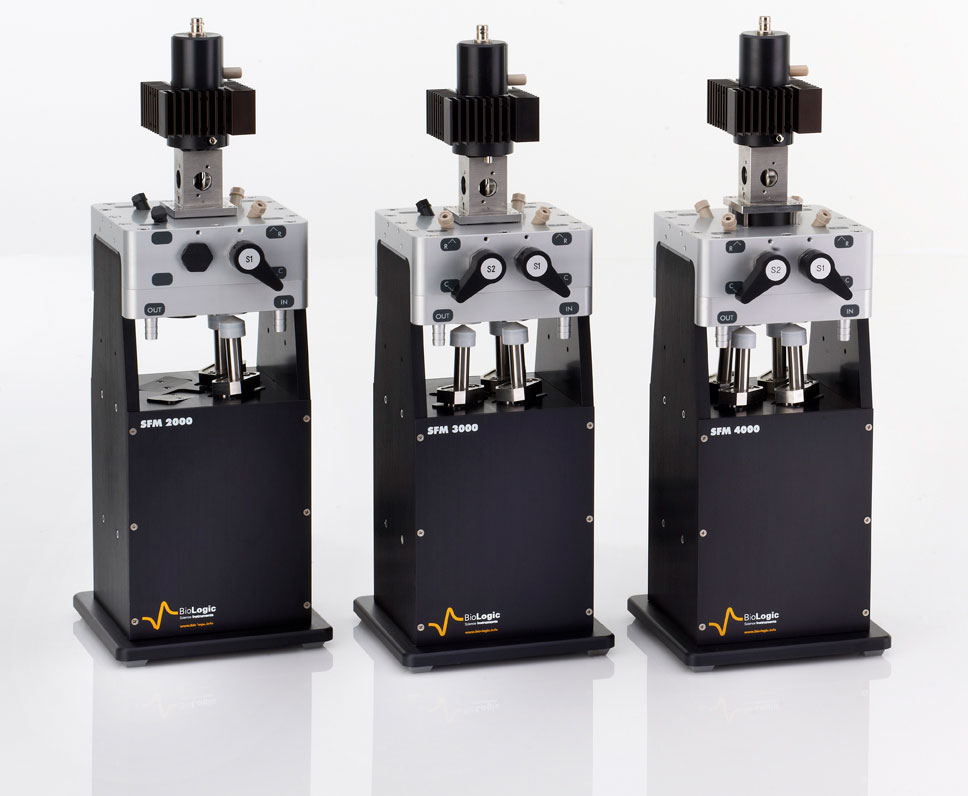Rapid kinetics: stopped-flow and related techniques
Often considered the go-to instrument type for rapid kinetics, Stopped flow has been popular in kinetics laboratories for decades.
It has been the main choice for stopped-flow because experiments are relatively easy to set-up and complete kinetics can be obtained from a single experiment. Originally confined to fluorescence and absorbance changes, the stopped-flow technique can now be used with a large range of detection techniques such as circular dichroism X-ray and neutron scattering, providing increasingly more insights about reaction mechanisms and the structure and the environment of the sample.
However, alternative and complementary approaches to stopped-flow may be required when direct-optical coupling is not possible or when users wish to really capture reactions intermediates. This process is commonly called quenching and can be achieved using temperature, optical flashes or by simply mixing with a third solution. This corresponds to freeze quench, optical quench and chemical quench-flow systems.
Fields of application for stopped-flow
Over the years, stopped-flow and quench-flow have found their place in many fields of applications. Thanks to the low-temperature operation and their capability to withstand organic solvents they are used in inorganic chemistry to identify reaction intermediates. Stopped-flow is also extensively used in biochemistry to study protein stability or conformation changes. The possibility of changing mixing conditions being a key factor; concentration series can be carried out automatically. In fact, the potential applications for stopped-flow and associated techniques are endless.
Researchers are constantly looking for modular systems, so their instrument is not limited to a single task and can grow with their research. Bio-Logic instruments are based around a modular design ensuring that they are to future-proof. They are instruments that will withstand the tests of time, the rigors of the laboratory and the ever-increasing demands of your research.
A complete range of rapid kinetics solutions
The premium stopped-flow family (SFM) lies at the heart of our rapid kinetics instrumentation range. Based on independent stepping motor technology, SFM has been designed to deliver the shortest possible dead time and the highest precision, to minimize sample consumption and to accommodate the largest range of detectors. The SFM-2000/3000/4000 stopped-flow series is available for single, double or triple mixing applications. Recognized for its versatility, the SFM is not only a stopped-flow and can convert to a freeze quench, to a cryo stopped-flow, or to a chemical quench-flow system in minutes.
Microvolume solutions
For applications where sample cost is the primary concern, Bio-Logic has developed stopped-flow and quench-flow solutions that require just 10µl of solution per experiment. With a µSFM or QFM-4000, a complete series of experiments can be carried out with a 100 µl stock in a vial, saving precious time and samples without compromising on sensitivity.
5 reasons to choose a SFM series
